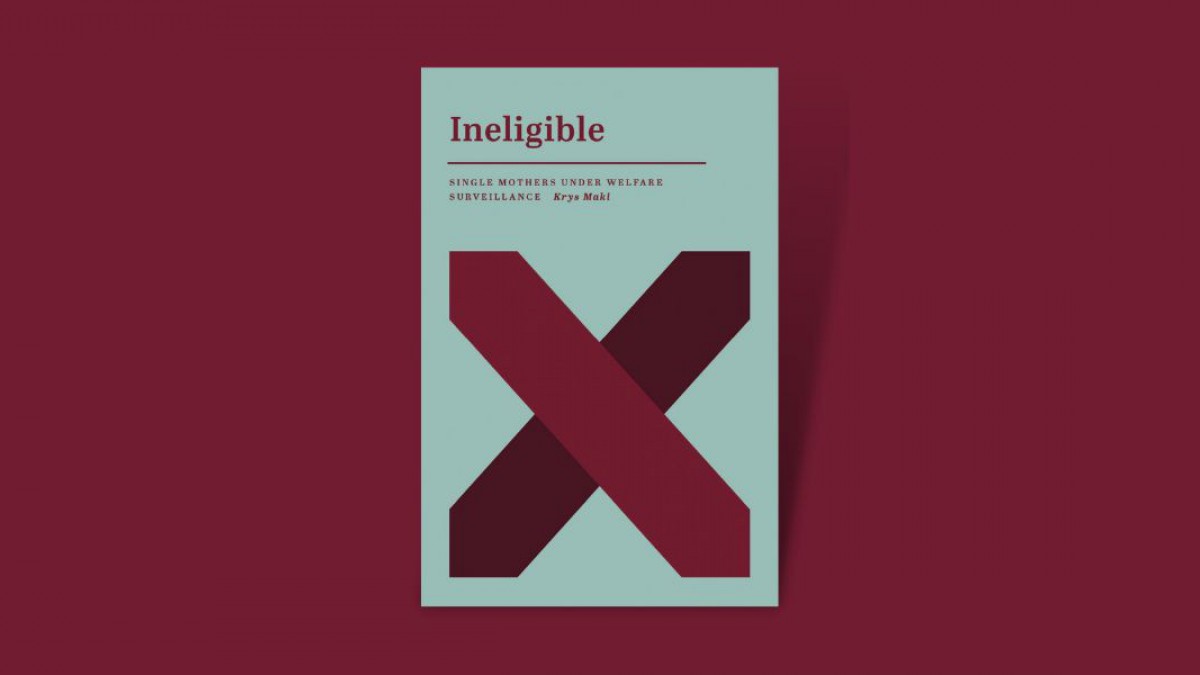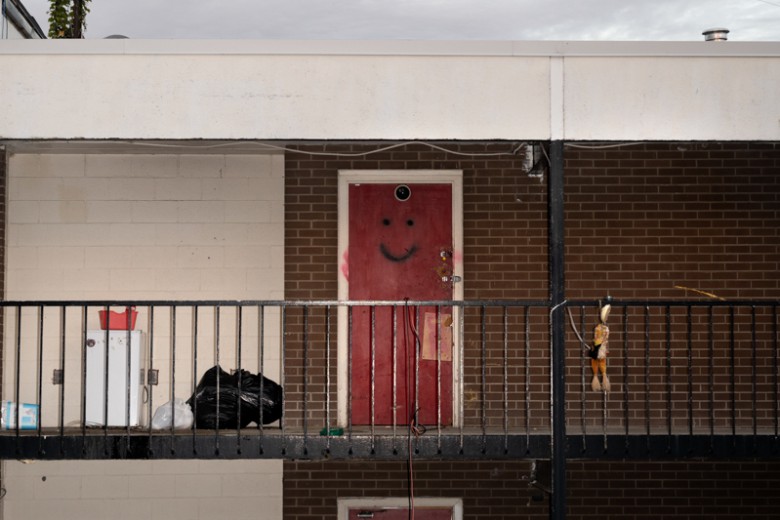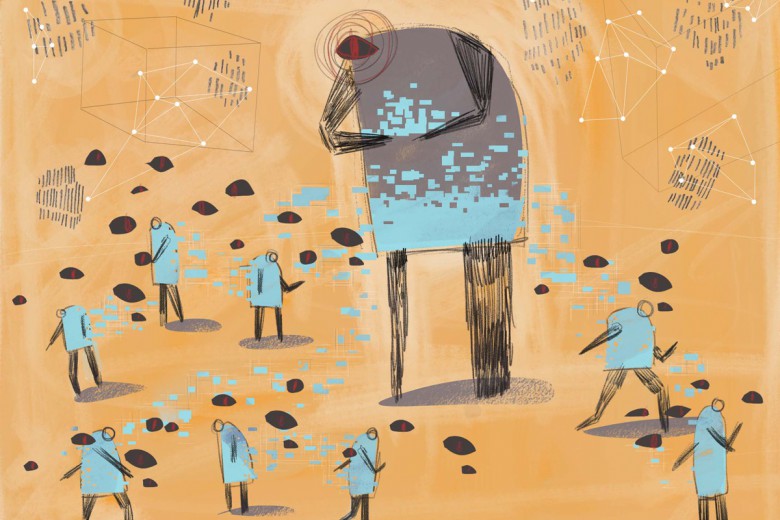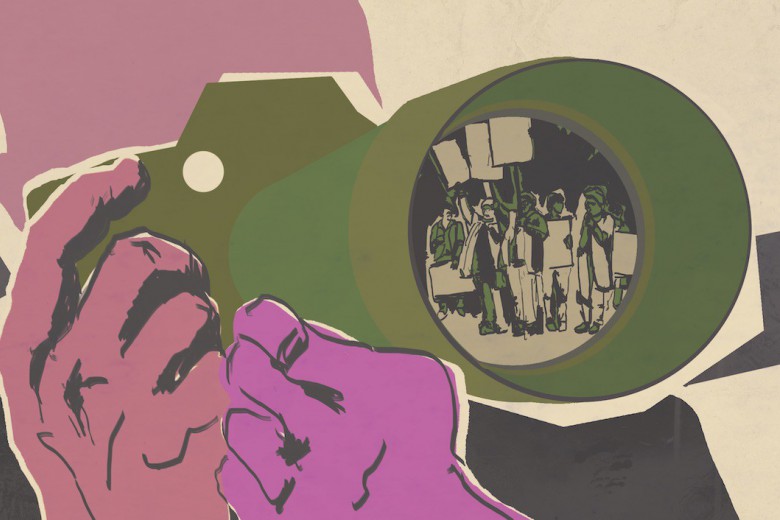In Krys Maki’s book Ineligible: Single Mothers Under Welfare Surveillance, Diane, a single mother, describes being questioned by her caseworker about why her rent was so high for someone living on welfare. When asked how she could afford the rent, Diane answered: “Most days I go without. I starve, okay? I exhaust food banks.” Certain that she must be getting funds elsewhere, her caseworker flagged her for welfare fraud investigation.
Stories like this are repeated throughout Ineligible, the culmination of Maki’s PhD research on the experiences of single mothers on welfare and welfare caseworkers in Ontario. Maki combines a history of welfare surveillance with the experiences of nine welfare workers and 18 welfare recipients to show how technological advancements have created a new frontier in monitoring and criminalizing the poor. “Moral regulation” – the human surveillance that monitors and scrutinizes things like spending habits, relationships, parenting, and life skills – interacts with algorithm-based software to determine eligibility (and ineligibility) for welfare.
Ineligible is most effective when sharing single mothers’ lived experiences of being caught in a web of state surveillance. Quotes about “spouse in the house” policing – where single mothers must continually prove that they are not in a romantic partnership for fear of losing their benefits – demonstrate welfare agencies’ extreme and invasive oversight of the lives of poor, single mothers. One participant described getting investigated for welfare fraud because she was seen in public with her ex-partner (and children’s father): “Basically they’re stating ‘oh you can’t be in public with him, you know, or we’re gonna suspect you’re frauding.’ I didn’t know I wasn’t allowed to do that. Of course we’re gonna have some sort of relationship for the kids’ sake, you know, friendship. Wouldn’t they rather we get along?” Mothers describe fearing being forced to provide personal information about ex-partners to aid in child support payment investigations. One mother who resisted enforced child support payments stated that “had OW [Ontario Works] forced me to go after my ex for child support, he probably would have killed me.”
“Moral regulation” – the human surveillance that monitors and scrutinizes things like spending habits, relationships, parenting, and life skills – interacts with algorithm-based software to determine eligibility (and ineligibility) for welfare.
Equally troubling is the use of community surveillance. Maki shares numerous stories of ex-partners and disgruntled friends and neighbours calling into the “welfare fraud hotline,” established in 1995 under Ontario’s Progressive Conservative government. One participant said, “It’s just constant, people phoning on each other, whether they’re friends or not.” These testimonies demonstrate how the state offloads surveillance onto community members, many of whom are also accessing welfare.
The threat that this surveillance will lead to one’s children being apprehended is ever-present, especially for the Indigenous mothers Maki interviewed. One mother described internalizing that her children might be better off in “a middle-class, non-Indigenous foster home” after an investigation that conflated her lack of material goods like a flat-screen TV with poor parenting. Another Indigenous mother Maki interviewed stated plainly that “being Native” was enough to flag someone for investigation.
Maki also offers a valuable new contribution to the study of welfare surveillance by including interviews with welfare case workers and counselors. In contrast to welfare recipients, staff are rarely interviewed. This is in part due to barriers that management often puts in place between workers and interviewers, such as hand-picking the staff who can be interviewed and requiring questions ahead of time. In this book, the voices of case workers remind us that the process of determining eligibility is not objective; it is carried out by people with the ability to both enforce and resist. As Maki writes, “the welfare surveillance apparatus is much more than just technology and algorithms that govern at a distance using automations to sort and categorize. […] Human beings enforce the mandates of welfare.” Case workers do, however, describe how the increasing reliance on third-party software to determine and assess eligibility has changed their jobs and limited the “personal touch” of case work. Many of the case workers Maki interviewed described how the automation of welfare eligibility has only pushed clients further into poverty.
Another Indigenous mother Maki interviewed stated plainly that “being Native” was enough to flag someone for investigation.
Ineligible is timely as there have been increased calls from some advocates and scholars to replace police with social workers and mental health professionals. There has been significant pushback to these suggestions, including from social workers themselves, who feel that their work is already too close to law enforcement. Although social workers are not armed with Tasers or guns, the stories in Ineligible show that the ability to cut off income support and remove children from their parents is a serious power. If the state remains punitive and carceral, does it matter what agent of the state delivers the message?
The stories in Ineligible reveal the far-reaching web of Ontario’s welfare system which systematically punishes poor people, often in gendered and racialized ways. Maki ends the book with a warning against fighting exclusively for welfare reform. Speaking from their experience as an anti-poverty activist, Maki writes, “Our efforts, if successful, have been only temporary and have resulted in advocates and recipients having to settle for new programs that were more rigorously monitored and restrictive.” In other words, surveillance is a deliberate feature, not a design flaw that can be removed with policy change or updated technology. The stories of surveillance told in Ineligible serve as a reminder to maintain a wide conception of state violence and remain critical of calls to reform punitive and carceral state systems.







